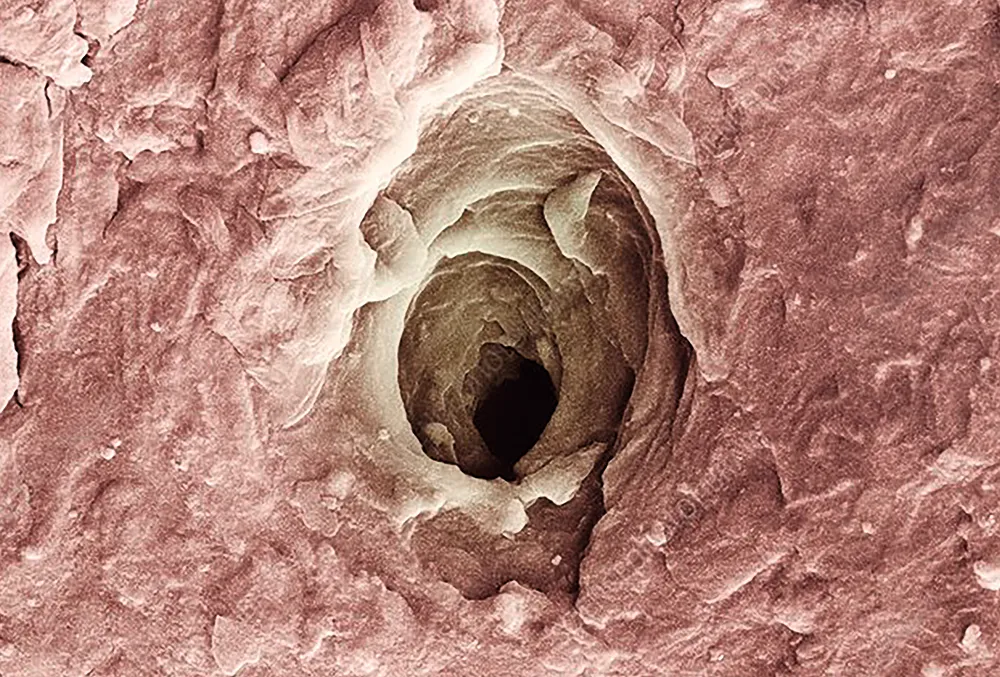If you’ve ever tripped and grazed your skin, broken out in a rash, or suffered from acne or eczema, you might have found yourself wondering why human skin is so frail and fragile. Bruises, dry skin, callouses, hives, sunburn and scar tissue are among the many skin ailments that can at best irritate us and at worst seriously harm our health. But these gripes are minor when we consider all the things skin does for us.
Skin is the largest and fastest-growing organ in the body. It provides a waterproof yet breathable barrier that protects us from the elements, parasites and pathogens. It is strong, yet extremely flexible. It helps regulate body temperature, reduces water loss and manufactures vitamin D. And, although it sometimes produces scar tissue, skin is amazingly good at self-healing after damage.

Humans are the only ‘naked’ ape and our unique skin adaptations have been crucial to our evolution. For example, without hair to protect us, human skin evolved melanin to block harmful UV radiation. Specialised sweat glands helped our ancestors thermoregulate while walking long distances in hot conditions, and the high density of nerve cells in our hands may have proved crucial for our ancestors to shape and use tools.
Skin is so versatile and adaptable that scientists are developing lab-grown skin grafts to deliver drugs – such as insulin to treat diabetes – directly into the body. Researchers hope these gene therapy skin grafts could one day treat a range of diseases.
Read more:
- Why do we have moles on our skin?
- Why are bald heads so shiny, when the skin elsewhere on your body isn’t?
- How much skin does a human shed in their life?
- Why don’t scars disappear as skin is shed?
Asked by: Mary Collins,Bedford
Every week on BBC World Service,CrowdScienceanswers listeners’ questions on life, Earth and the Universe. Tune in every Friday evening on BBC World Service, or catch up online atbbcworldservice.com/crowdscience
